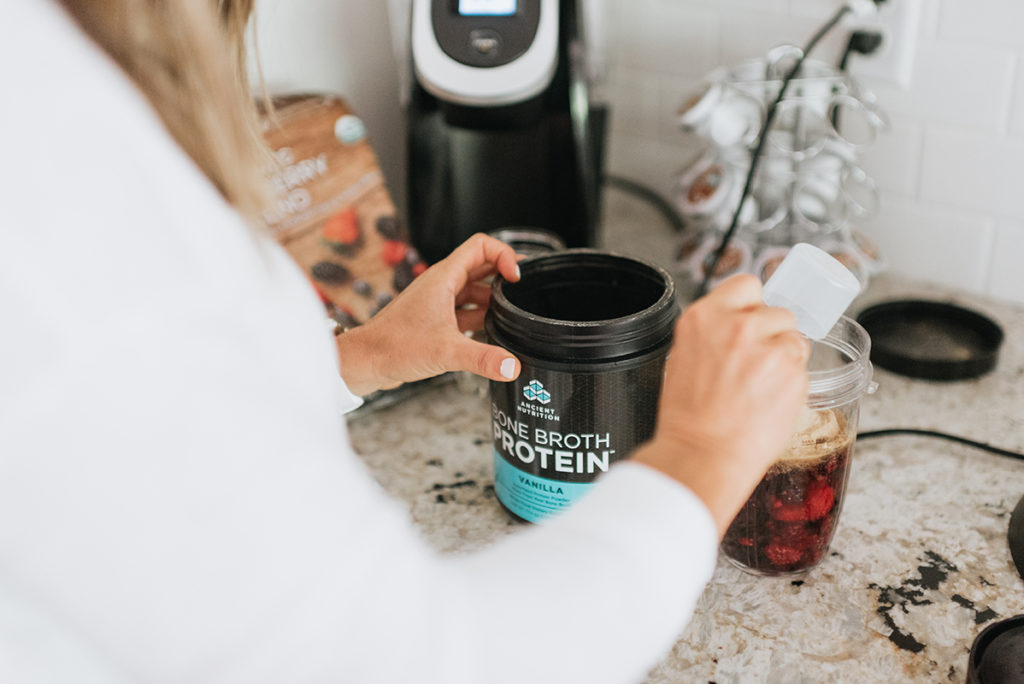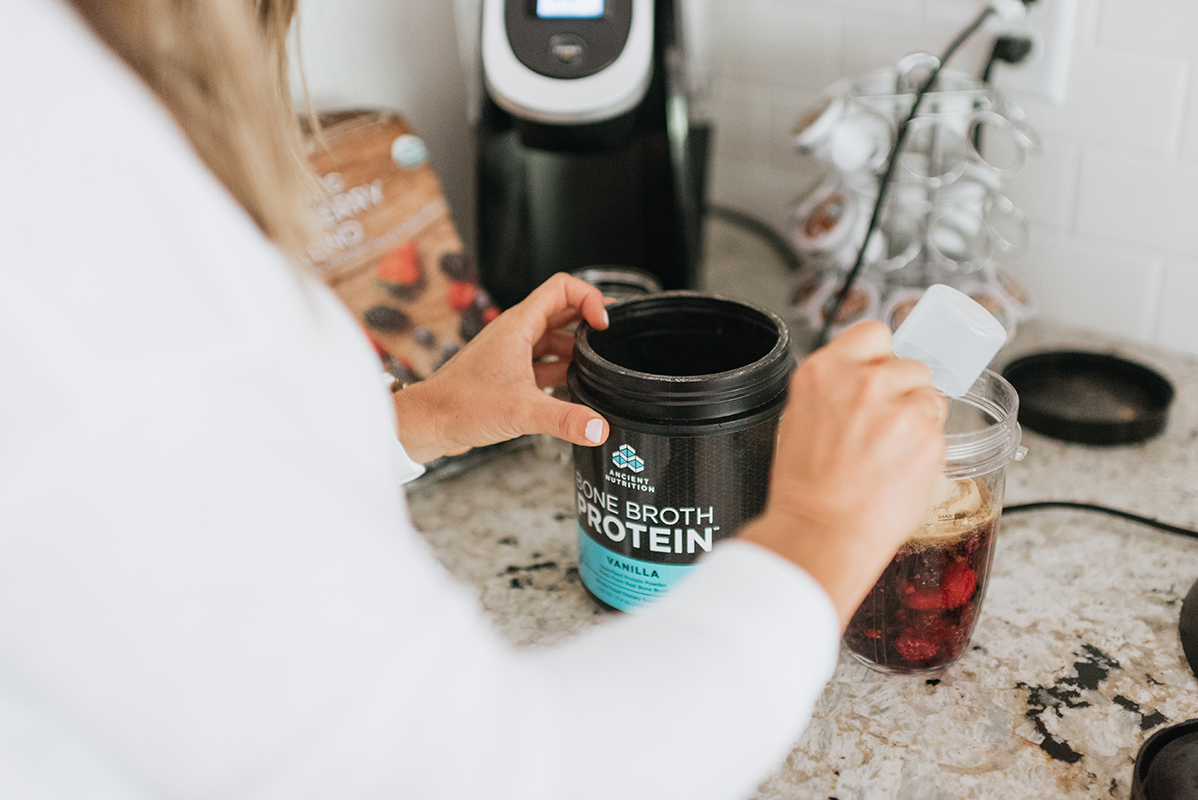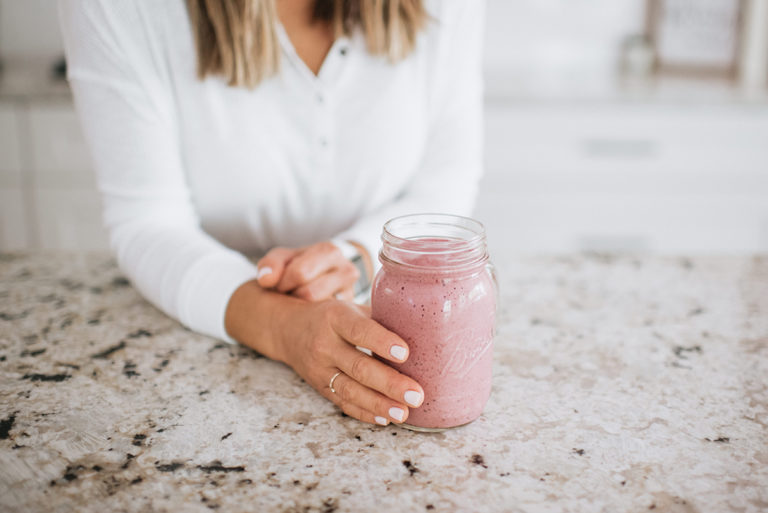Journey to Food Freedom, Part 2: Food is Fuel!
I’m talking macronutrients.
I was never “overweight”, per se, but goodness I didn’t feel well (in my earlier days) and my body was changing as the years went by. It seemed the more I worked out and the healthier I ate, the less out of shape I was getting. I was losing muscle despite strength training 4 days a week. Is that even possible? Yes it is!
As we age, our bodies lose muscle mass. A shockingly 3%-8% per decade after the age of 30. We know that maintaining a healthy muscle mass is so important for our metabolism, protecting our bones and other processes in the body. Did you know that your metabolism slows down when you lose muscle? Interesting, right?
Over the last decade, I learned that living in complete restriction (AKA: perfection) with our nutrition can lead to binge eating and over consumption. It became important for me to find a way of eating that was both satisfying and nutrient dense in order to protect my body and achieve optimal health as I age. I wrote about this in my last blog post about the 80/20 balance.
In addition to crafting my 80/20 lifestyle, I began to experiment with the keto diet which required me to track macronutrients. That experience is for another blog post. 🙂 I learned so much about my body during that experiment and it truly awakened me to something. I had been eating healthy, yet I was undernourished. Hence, losing muscle tone despite my training in the gym. What you need to know about macronutrients for the remaining part of this blog post: Macronutrients are Protein, Fats, and carbohydrates. The building blocks of our food. Everything we consume falls into one or more of the 3 categories. Further, food fuels our bodies and is our main source of energy!

I felt like I was training hard, dialed in my nutrition, sleeping 7-8 hours a night, drinking plenty of water and I still wasn’t achieving the body composition goals I had hoped for or that should come from all that I was “doing right”.
Very frustrating! But what I found was that while doing the keto diet, my protein intake was very low. The truth is, in order for your body to reach the state of Ketosis, you can’t consume a lot of protein. So, the very reason I experimented with keto was to allow my body to burn more fat, and in return I began losing muscle for the sake of burning fat, hmmmm. Doesn’t sound like a good plan. And if you remember me talking in last blog post how consuming adequate protein is vital to keep your metabolism running smoothly and to protect our bones as we age, and I was counteracting that. Not good. Sure, I dropped a few pounds off the bat, but my body then started doing the opposite, holding onto fat because it was confused and felt like I was starving it. Recipe for disaster. Not to mention the other hormones in my body that were being disrupted.
I began to do my research and experiment with changing my macro nutrient ratio to a more protein centric approach and making sure I was eating enough. When I was doing keto, I found my total daily calories at 1,000-1,100 a day. Not enough for someone who is active and strength training. I started by increasing my daily protein intake, consuming around .8-1 g per pound of body weight in one day.
I began to notice improvements in my health like more energy, feeling more satiated, regulated digestive track. 🙂 And over time, I began to see improvement in my muscle tone and my ability to become stronger. My goal of becoming stronger is not for the sake of looking like a body builder, it’s because I know the science of how maintaining lean muscle mass as we age is vital for our health.
Last, if this has resonated with you or if you are considering upping your protein intake, here is some helpful information about protein. We consume protein through a variety of quality animal-based sources like Organic chicken, turkey, grass-fed beef, venison, tuna, salmon, tilapia, eggs and quality sources of dairy. You can also acquire protein from plant-based sources as well such as: tofu, edamame, chickpeas, beans, lentils, and many vegetables have a small amount of protein in them. However, I will note, quality animal protein sources are a complete protein which contain all essential amino acids that are responsible for building lean muscle mass. Plant-based protein does not. It’s not that you shouldn’t consume plant-based protein, you just shouldn’t rely on it for maintaining or building lean muscle mass, IMO.
We often need to supplement protein in our diets which can come from a protein powder source. If you can tolerate dairy, I would recommend a quality source of grass-fed whey protein powder. If you are someone who doesn’t tolerate dairy well, try a bone broth protein. I like Ancient Nutrition Chocolate Bone Broth protein powder.
What I truly found through this journey was a healthy macronutrient ratio for my body. One that gives me energy daily as well as a healthy body composition. Not more hours training in the gym or a bigger calorie deficit. Rather, a daily plan to have my nutrition (tracking macros) and fitness journey work for me, not against me. The 80/20 balance and tracking macros has contributed to my journey to food freedom!
I hope you found this resourceful. Got questions, shoot me a message. I would love to connect!





